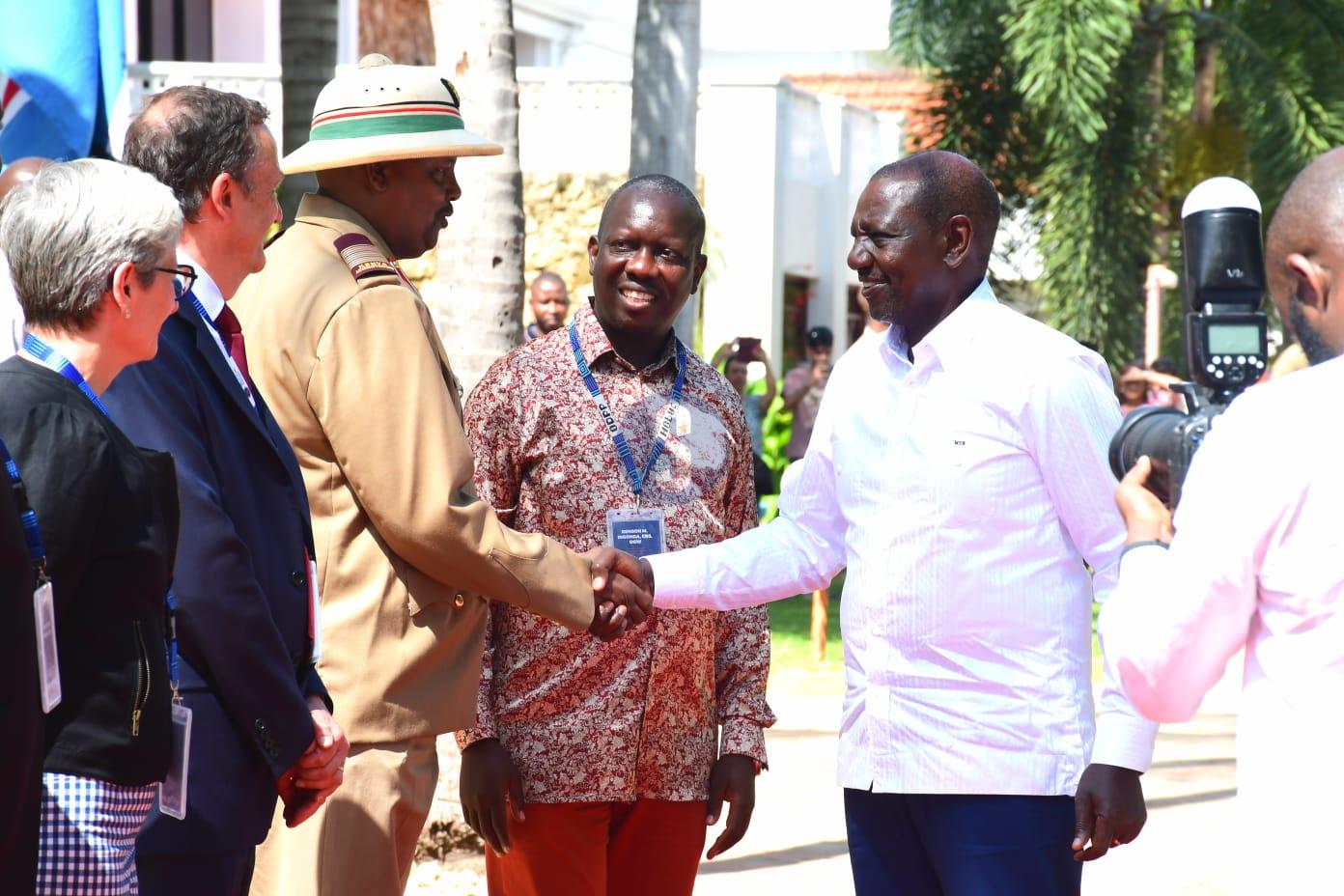
President William Ruto has called on Commonwealth nations to forge stronger alliances and adopt a united stance against terrorism, money laundering, and human trafficking.
Speaking during the official closing of the 23rd Commonwealth Heads of Prosecuting Agencies Conference (HOPAC) in Mombasa, President Ruto warned that the scale and sophistication of transnational organized crime is escalating globally.
He stressed that no single country can confront these threats in isolation. He called for robust partnerships, integrated international responses, and enhanced prosecutorial collaboration.
“The perpetrators of these crimes operate across borders, moving people, goods, and illicit money through shadowy networks, whether smuggling narcotics between nations, trafficking vulnerable individuals across continents, or laundering dirty money through intricate offshore systems,” he said.
Addressing leaders of prosecution agencies from 19 Commonwealth nations, President Ruto emphasized the need for vigilance and deeper cooperation to identify, investigate, and prosecute the individuals and networks behind these crimes.
“It is through collaboration between national, regional, and international agencies that we can effectively disrupt and neutralize these threats and blunt their negative impact,” he stated.
The President told the delegates of Kenya’s own experiences with terrorism, including the 1998 United States Embassy bombing in Nairobi, the 2013 Westgate Mall attack, and the 2015 Garissa University attack.
He said that through heightened vigilance, improved intelligence gathering, and strengthened international cooperation, Kenya has made significant progress in bringing perpetrators to justice.
“Last month, two individuals were found guilty of aiding the DusitD2 attackers. Sentencing is scheduled for June 19, 2025. In the Garissa University case, three individuals were found guilty in 2019 and sentenced to life imprisonment and 41 years each,” he said.
Currently, Ruto said, 24 terrorism-related cases remain active before Kenyan courts, most involving individuals linked to international terrorist organizations.
“These efforts have not only led to successful prosecutions but have also significantly suppressed such attacks and enhanced national security,” he said.
He cited the DusitD2 terrorist attack as an example, where financing was traced to a bank in South Africa, various Kenyan banks, and institutions in Somalia.
“An in-depth analysis of these cases shows that perpetrators and criminal networks operate across multiple jurisdictions. Financing, facilitation, and execution are transboundary in nature,” he noted.
He also pointed out that terrorists increasingly use encrypted social media platforms and cryptocurrency to fund their activities.
“These cases underscore the scale and complexity of the threats we face and the urgency of sustained, coordinated action,” Ruto said.
President Ruto also highlighted the increasing cases of human trafficking and illegal entry. Between 2021 and 2024, Kenya recorded 720 cases related to human trafficking and organized crime.
Additionally, the Office of the Director of Public Prosecutions (ODPP) has registered 30 money laundering cases over the past three years.
The President also called for a renewed focus on asset tracing, confiscation, and forfeiture in terrorism and human trafficking cases, stressing that denying criminal enterprises access to the proceeds of their illicit activities is vital.
“I challenge the heads of prosecuting agencies here to prioritize this endeavor. Kenya is committed to enhancing the capacity and resources of the ODPP to lead these efforts regionally and internationally,” he added.
He said Kenya’s recent reforms to strengthen its anti-money laundering and asset forfeiture framework reflect its commitment to establishing stronger institutions and high-quality investigations, while maintaining a human rights-centered approach to justice.
Kenya’s ODPP has also signed Memorandums of Understanding (MoUs) with prosecutorial agencies in Azerbaijan, Morocco, Qatar, and Saudi Arabia to strengthen cooperation on terrorism, terrorism financing, transnational organized crime, and prosecutor capacity building.
President Ruto was accompanied by Kenya’s Director of Public Prosecutions, Renson Ingonga, and Mombasa Governor Abdulswamad Nassir.
Ingonga said the conference featured deep and insightful discussions on the interconnectedness of money laundering, terrorism financing, and transnational organized crime.
“We have acknowledged that no single jurisdiction, regardless of its legal or intelligence sophistication, can effectively combat these threats alone. Our collective strength lies in forging robust, agile, and enduring partnerships,” Ingonga said.
“To address this ever-evolving landscape, we must adapt and develop mechanisms to stem the rapid growth of transnational organized crime,” he added.
The leaders of prosecution agencies reaffirmed that preventing transnational organized crimes is not just a security imperative, but also a moral, social, and developmental necessity.
Delegates at the conference included representatives from Uganda, Zambia, Tanzania, Zimbabwe, Nigeria, Mozambique, Seychelles, Morocco, Australia, Scotland, Ireland, New Zealand, England, Wales, Antigua and Barbuda, and Azerbaijan.















